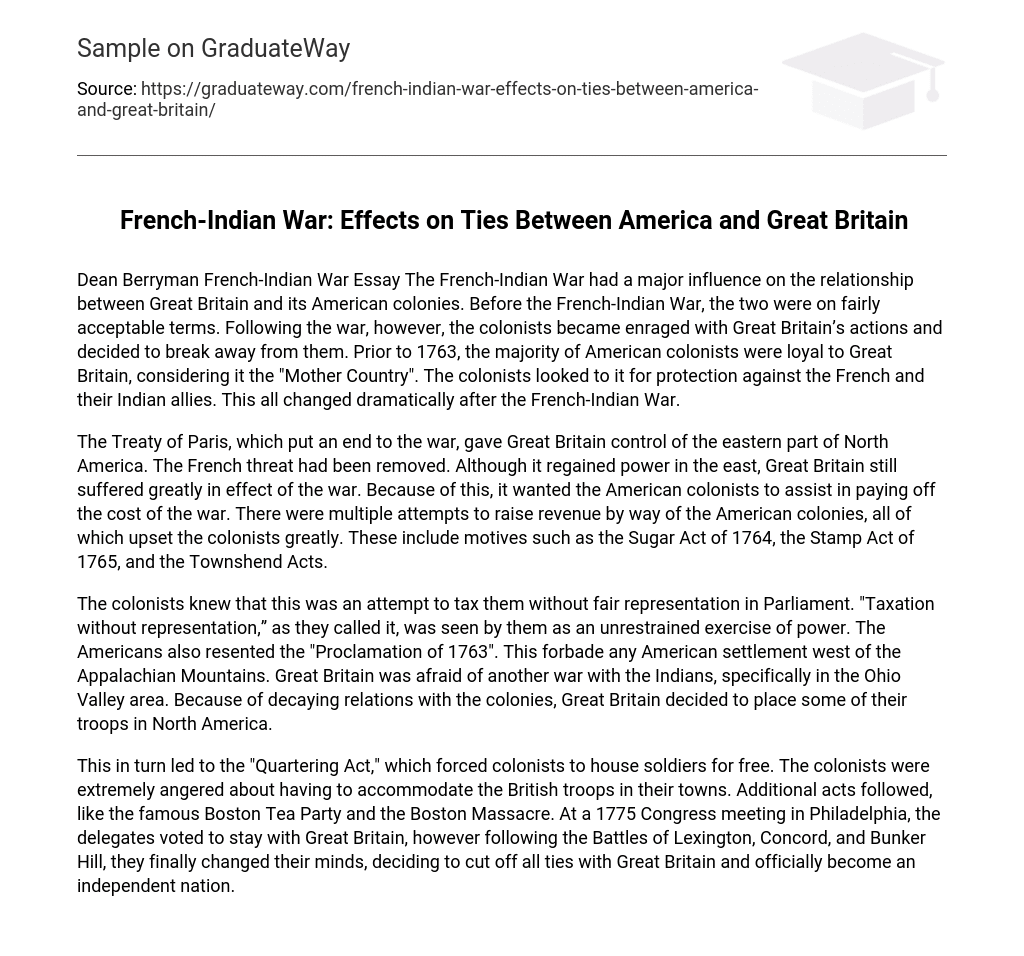Dean Berryman French-Indian War Essay The French-Indian War had a major influence on the relationship between Great Britain and its American colonies. Before the French-Indian War, the two were on fairly acceptable terms. Following the war, however, the colonists became enraged with Great Britain’s actions and decided to break away from them. Prior to 1763, the majority of American colonists were loyal to Great Britain, considering it the “Mother Country”. The colonists looked to it for protection against the French and their Indian allies. This all changed dramatically after the French-Indian War.
The Treaty of Paris, which put an end to the war, gave Great Britain control of the eastern part of North America. The French threat had been removed. Although it regained power in the east, Great Britain still suffered greatly in effect of the war. Because of this, it wanted the American colonists to assist in paying off the cost of the war. There were multiple attempts to raise revenue by way of the American colonies, all of which upset the colonists greatly. These include motives such as the Sugar Act of 1764, the Stamp Act of 1765, and the Townshend Acts.
The colonists knew that this was an attempt to tax them without fair representation in Parliament. “Taxation without representation,” as they called it, was seen by them as an unrestrained exercise of power. The Americans also resented the “Proclamation of 1763”. This forbade any American settlement west of the Appalachian Mountains. Great Britain was afraid of another war with the Indians, specifically in the Ohio Valley area. Because of decaying relations with the colonies, Great Britain decided to place some of their troops in North America.
This in turn led to the “Quartering Act,” which forced colonists to house soldiers for free. The colonists were extremely angered about having to accommodate the British troops in their towns. Additional acts followed, like the famous Boston Tea Party and the Boston Massacre. At a 1775 Congress meeting in Philadelphia, the delegates voted to stay with Great Britain, however following the Battles of Lexington, Concord, and Bunker Hill, they finally changed their minds, deciding to cut off all ties with Great Britain and officially become an independent nation.





